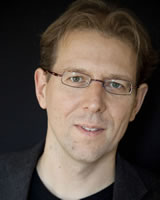A Digital History of Knowledge: The Search for Patterns and Principles from 1800 - 2000
Research Question
How can the history of science and humanities be integrated within a unified historical framework? What kind of history of knowledge do we get if we decenter both the natural sciences and Europe as object of focus? How can digital tools and techniques be used to write a long term history of knowledge?
Project Description
The idea that the world can be understood through patterns and underlying principles is one of humankind’s most influential insights. While patterns are empirical regularities in the world, principles are theoretical generalizations over these patterns. Although patterns and principles are referred to by different terms in different periods and cultures, the concepts themselves are quite general. From Asia to Europe and from Africa to the Americas, people have searched for regularities and underlying principles to make sense of the natural and the cultural world. The quest for patterns and principles is found in all knowledge-making disciplines, from the humanities to the sciences. In order to make a long-term historiography of knowledge possible, I will explore in what way digital tools — from topic modeling to advance natural language parsing — can help to harvest the enormous amount of sources, going from distant to close reading.
Selected Publications
Rens Bod, 2019. Een Wereld Vol Patronen, Prometheus (translated into English as A World of Patterns, to appear with Johns Hopkins University Press in 2020).
Rens Bod, 2013. A New History of the Humanities: The Search for Patterns and Principles from Antiquity to the Present, Oxford University Press.
Rens Bod, Jeroen van Dongen, Sjang ten Hagen, Bart Karstens and Emma Mojet, 2019. “The Flow of Cognitive Goods: A Historiographic Framework for the Study of Epistemic Transfer”, Isis, 110(3), pp. 483-496.
